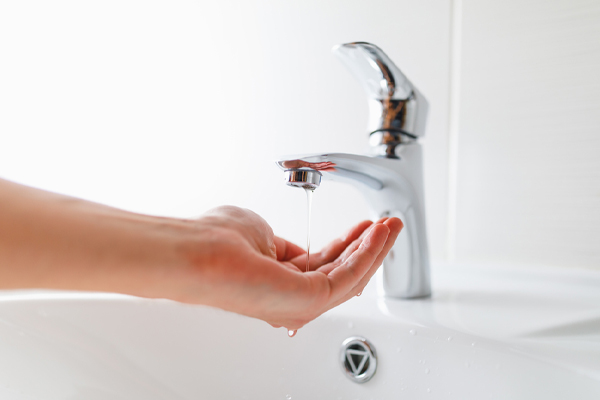
People often take reliable running water for granted until something goes wrong. For example, you might open a faucet and find water dripping slowly instead of the usual strong gush. You may still be able to wash your hands, clean the dishes, and take a shower but the low water pressure in house will test your patience. This problem is due to low water pressure. In order to fix it, you will have to figure out the root cause with the help of a professional plumber.
Why Is My Home Water Pressure So Low?
Contents
- 1 Why Is My Home Water Pressure So Low?
- 1.1 1. Water Supplier Issue
- 1.2 2. Modified City Regulations
- 1.3 3. Partially Open Main Shutoff Valve
- 1.4 4. Partially Open Water Meter Valve
- 1.5 5. Failing Pressure Regulator
- 1.6 6. Clogged Water Pipes
- 1.7 7. Corroded Water Pipes
- 1.8 8. High Demand with Shared Pipes
- 1.9 9. Water Leaks in the Pipes
- 1.10 10. Aging Fixtures
- 1.11 Conclusion
- 2 Call Robinson Plumbing For All Of Your Plumbing Requirements
Below are ten of the most common causes of low home water pressure:
1. Water Supplier Issue
It is possible that the problem is not with anything around your house. The drop in pressure may be due to an issue at the source itself. Don’t go changing your pipes and turning the valves until you talk to your neighbors. Are they experiencing the same thing? If all of the homes in the vicinity are complaining about this, then you can conclude that you are dealing with something bigger than you can handle. The people in the neighborhood must call the utility company to inform them about the situation and ask them for a resolution.
2. Modified City Regulations
The water system might be fine but the city itself has changed regulations regarding water distribution. In this case, the water supplier will have to adjust accordingly. Residents may end up needing a water pressure booster to cope with the changes. Get the best results by letting an experienced, licensed plumber take care of the equipment selection and installation. Plumbers will consider the size of the home and the age of the pipes to come up with the right solution. Certain jurisdictions will require an inspection to ensure adherence to standards. A plumber will ensure that you pass with flying colors.
3. Partially Open Main Shutoff Valve
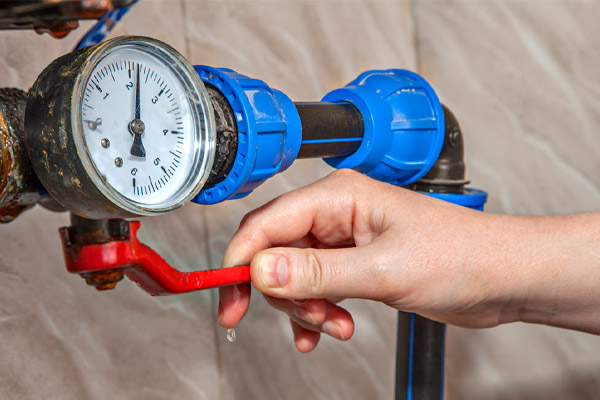
If you have eliminated the first two possibilities, then you may begin to set your sights on the plumbing system in your home. The most logical starting point is the main shutoff valve. If the low pressure is consistent around the house, then the cause may be a partially open valve. This reduces the flow at the point where you tap into the city supply. You will need to open this all the way to let water flow unimpeded. Someone may have closed it for a recent house repair and failed to open it up the right way afterward.
4. Partially Open Water Meter Valve
The next point of concern is the water meter valve which also controls the amount of water going into the home. Water companies install these themselves and residents usually won’t have to touch them. Some are located underground making access difficult. Think back to when the low water pressure started. Was there any work done around the house before it happened? Perhaps the valve was not brought back to its original setting after the project’s completion. The water company may have to come back and rectify the situation.
5. Failing Pressure Regulator
A pressure regulator is responsible for keeping the flow strong and stable. If it becomes faulty, then you can experience low flow. One way to check whether this is failing is to use a water pressure gauge. Place this to an outdoor spigot close to the regulator. The reading of the gauge and the regulator should closely match because of their proximity. If the gauge is reporting a much lower pressure than the regulator, then the latter is probably broken. Call a plumber to replace this as soon as possible.
6. Clogged Water Pipes
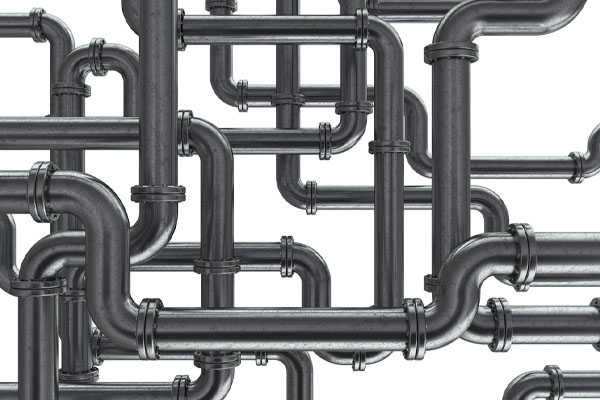
Water will not be able to flow freely if the pipes are clogged. Even a small blockage can have a big effect given the diameter. A partial blockage will result in reduced pressure. It can be difficult to hunt for the exact location since the pipes run under the house. You will need to get the help of the plumber for an accurate assessment of the situation. Do not pour harsh chemicals to unclog the pipes since this could backfire by damaging the plumbing system and contaminating the drinking water.
7. Corroded Water Pipes
Consider the age of the water pipes. If you are living in an old house, then they may have been around for decades. Galvanized steel pipes were a common choice in the past because they were cheap and easily available. However, they start to corrode after 20 years. You may not be able to see the rust but you can see the effects including water discoloration and low water pressure.
If you have a large house with many occupants, then you should consider the possibility that the demand is too high for the supply. Perhaps people are using water at the same time such that the system is spread too thin. This is common early in the morning when there is a rush to prepare for work and school. There are also homes where the pipes are shared among neighbors. If your neighbors are using the shower, then your water pressure might go down. The fast fix is to schedule water use during non-peak hours. The long-term solution is to change the piping system to prevent dips.
9. Water Leaks in the Pipes
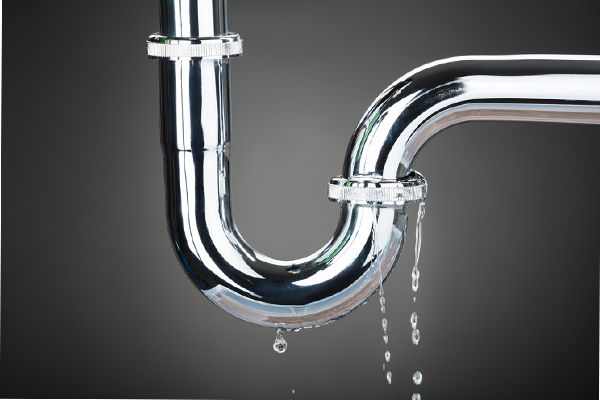
If the pipes are leaking, then the pressure will drop beyond the damaged areas. Look for telltale signs such as flooded basements and wet spots around pipes. If you have direct access, then it should be easy to fix. You can wrap the area with a rubber patch as a temporary solution while you wait for your plumber to come in and fix it for good.
10. Aging Fixtures
If you are experiencing low pressure only from a specific fixture, then the problem may be the build-up of dirt and minerals over time. Try to clean the faucets and showerheads to see if this solves it. If not, then consider a replacement.
Conclusion
What seems to be a simple problem may prove to be complex upon closer inspection. Unless you have experience fixing the plumbing, it is a good idea to let the professionals handle the situation. Plumbers can quickly diagnose and repair the problem. You will get back the regular flow in no time at all.
Call Robinson Plumbing For All Of Your Plumbing Requirements
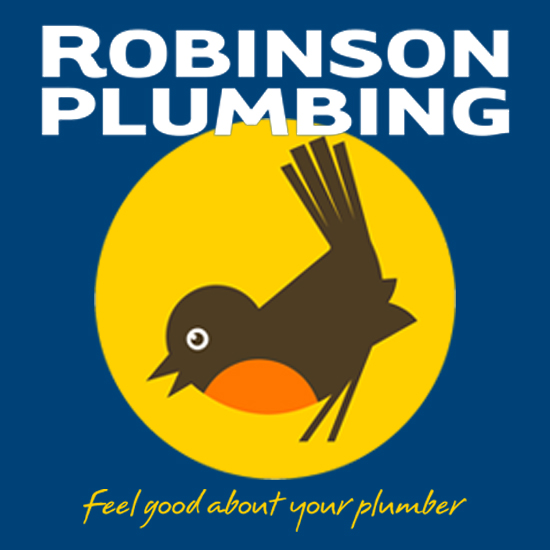
Contact Robinson Plumbing, one of the most trusted plumbing companies in the Lehigh Valley, for reliable plumbing services. We offer various plumbing services ranging from water heater replacements, whole-house water filter installations, toilet repairs, and replacements, water leak repairs, and more. We always give a wide range of solutions when possible for any plumbing repairs. This allows you to choose the best options for your budget and home.
Find yourself dealing with an unexpected plumbing problem in the middle of the night? No worries! You can count on the expert plumbers at Robinson Plumbing to take care of you. We offer reliable 24-hour emergency plumbing services. You can count on us to get the job done quickly and correctly and, best of all, in an affordable manner.
We proudly offer the most affordable and best plumbing services in the Lehigh Valley area. Our plumbers all have the proper licenses and expertise to ensure your satisfaction. All of our work comes with a guarantee. Contact Robinson Plumbing today and schedule your free estimate.
Call us today at (610) 351-9889 or click here to contact us for any questions that you might have!
